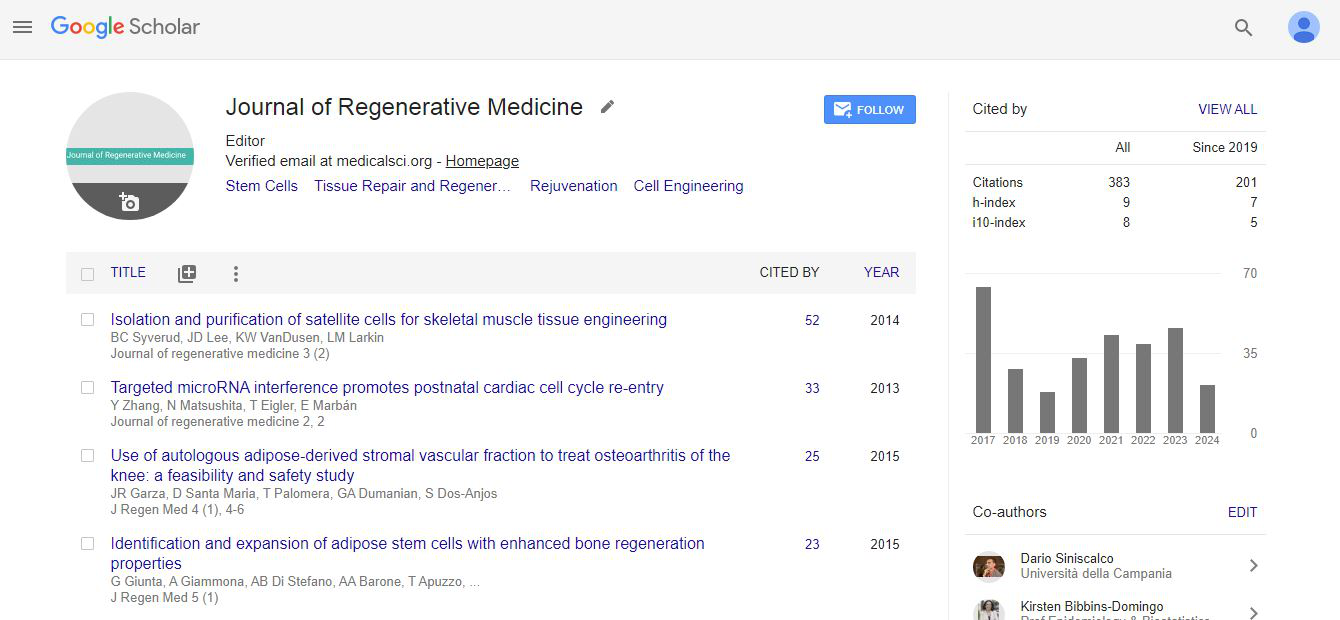Antioxidant and antibacterial effects of essential oils Atlas Pistachio (Pistacia atlantica)
Terras Mohamed and Berroukech Abedlkrim
Dr Moulay-Tahar University of Saida, Algeria
: J Regen Med
Abstract
At the level of the wilaya of Saida (Algeria), the genus pistacia is represented by three species; Pistachio atlas, Pistachio lentiscus and Pistachio terebinth. The pistachio tree of the atlas is resistant to the conditions of the region (cold during the winter and prolonged drought during the summer period) as well as the type of soil slightly deep and low in organic matter. Indeed, the natural antioxidants are the subject of many researches whose final objective the exploitation of the secondary metabolites notably the polyphenols as well in the health and vis-à-vis the diseases related to the modes of feeding (cancer) as in food industry. These compounds, which are represented by the flavonoid family (flavonols, isoflavonoles, flavones, isoflavones, flavanes, isoflavans, flavanols, isoflavanols, flavanones, isoflavanones, aurones and anthocyanidins), are widely sought after for their biological properties: anti-oxidants, anti-inflammatories , antibacterial and anti-carcinogenic. Noting that the potent effectiveness of these substances in stopping radical reactions by neutralizing free radicals is mainly due to their phenolic structures. The antioxidant compounds are the subject of many works for their anti-oxidant effects, we are interested in this work to the study of phenolic compounds and the evaluation of the antioxidant properties of extracts of Pistacia atlantica, the second part is the study the antimicrobial activity of the essential oil of Pistachio in vitro. The results show a good antioxidant activity with respect to the controls used, for the antimicrobial activity was recorded on certain pathogenic strains including Staphylococcus aureus and Escherichia coli.
Biography
Terras Mohamed has completed PhD studies in forestry in 2011, he also holds a master of science at the International Center of Advanced Agricultural Studies of Saragossa, Spain in 2003. He has authored several scientific publications and currently working on medicinal plants in the Saida region, Algeria.
E-mail: mohamedterras@hotmail.com
 Spanish
Spanish  Chinese
Chinese  Russian
Russian  German
German  French
French  Japanese
Japanese  Portuguese
Portuguese  Hindi
Hindi 